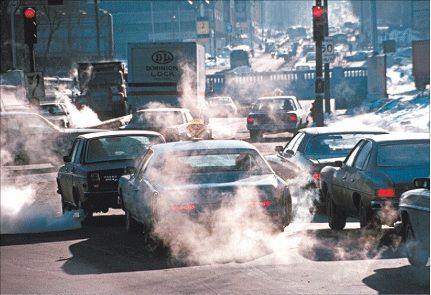Medical expert of the article
New publications
Urban air provokes cardiovascular disease
Last reviewed: 01.07.2025

All iLive content is medically reviewed or fact checked to ensure as much factual accuracy as possible.
We have strict sourcing guidelines and only link to reputable media sites, academic research institutions and, whenever possible, medically peer reviewed studies. Note that the numbers in parentheses ([1], [2], etc.) are clickable links to these studies.
If you feel that any of our content is inaccurate, out-of-date, or otherwise questionable, please select it and press Ctrl + Enter.
Air pollution contributes to the development of heart attacks and strokes, as science has long proven. But now Israeli scientists have found out that bad air is also the cause of recurrence of cardiovascular diseases in the long term. Do not be proud of an apartment in the very center; a cottage in the forest is much healthier. Dr. Yariv Gerber from Tel Aviv University claims that if cardiac patients live in cities with high levels of smog and other pollutants, they are more than 40% more likely to become victims of repeated heart attacks compared to those who live in clean air.

"We know that, like tobacco smoke, air pollution itself increases inflammation in the body," explains Dr. Gerber. "If you talk about long-term exposure to these pollutants, you'll see chronic inflammation. Bad air can be involved in the progression of atherosclerosis, which is then reflected in various heart diseases."
The study involved 1,120 patients who had suffered their first heart attack. All of them were treated in Israeli hospitals between 1992 and 1993. The participants were under 65 years old at the time of their initial hospitalization. The scientists followed them for 19 years until 2011.
It turned out that residents of urban centers with high levels of smog and victims of other persistent air pollutants were 43% more likely to have repeated heart attacks or to develop congestive heart failure. The risk of a second heart attack in their case increased by 46%.

